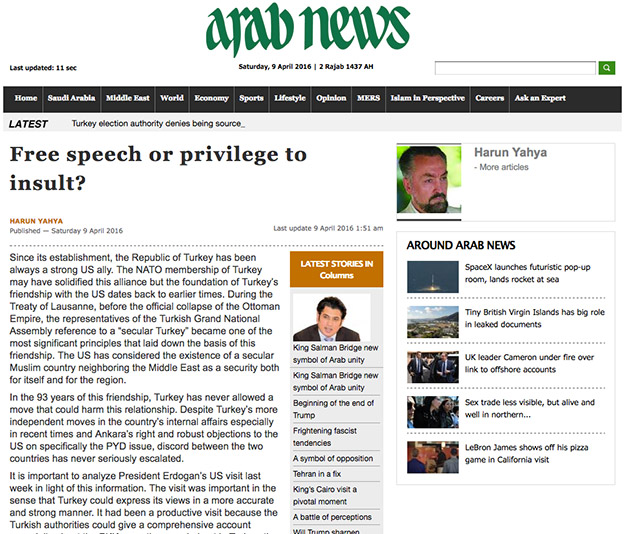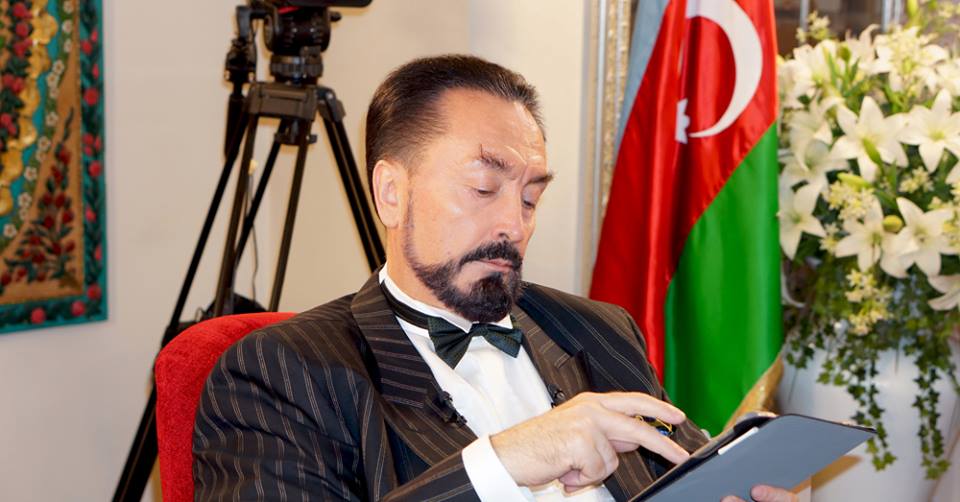Bigotry: The Dark Danger
Free speech or privilege to insult?

Since its establishment, the Republic of Turkey has been always a strong US ally. The NATO membership of Turkey may have solidified this alliance but the foundation of Turkey’s friendship with the US dates back to earlier times. During the Treaty of Lausanne, before the official collapse of the Ottoman Empire, the representatives of the Turkish Grand National Assembly reference to a “secular Turkey” became one of the most significant principles that laid down the basis of this friendship. The US has considered the existence of a secular Muslim country neighboring the Middle East as a security both for itself and for the region.
In the 93 years of this friendship, Turkey has never allowed a move that could harm this relationship. Despite Turkey’s more independent moves in the country’s internal affairs especially in recent times and Ankara’s right and robust objections to the US on specifically the PYD issue, discord between the two countries has never seriously escalated.
It is important to analyze President Erdogan’s US visit last week in light of this information. The visit was important in the sense that Turkey could express its views in a more accurate and strong manner. It had been a productive visit because the Turkish authorities could give a comprehensive account especially about the PKK operations carried out in Turkey, the PYD threats made to Turkey from abroad and the challenges Turkey faces. At this point, we need to dwell on the issue of “freedom of speech” highlighted by President Obama.
It would be proper to assess this issue from two different perspectives. Turkey’s conditions vary from the EU and the US both in terms of its geography and its sensitive structure. Although the regulations in the EU countries are decisive on the issue of human rights, their applicability in Turkey requires certain conditions, since Turkey is a country constantly living under the threat of terror. First off, the country is under a serious risk of fragmentation by the Stalinist circles. Terror organizations are operating in various cities; some elements in media circles advocate these terror outfits while some academicians and even some universities lend open support to them. Meanwhile, these illegal groups employ various means that will carry out their propaganda. All these factors pose serious threat to the country.
In these days when Europe is facing terror, it has become aware of the gravity of the existence of terror propagandists within its body and it has started to take precautions against it. European governments monitor social media accounts of those supporting terror organizations or simply close them. Cyber police monitor even international websites. Germany, which has been under the threat of Neo-Nazis for some time, disallows the use of Internet for spreading Neo-Nazi propaganda. For that reason, close attention must be paid to the situation of Turkey at this point. Especially for Turkey, which faces anarchist-communist threat, it is truly a correct practice not to give credit to terror-backing discourses.
One of the most fundamental issues that should not be assessed within the scope of freedom of speech is insult. Insult is a true sign of failure. A person who fails in intellectual struggle resorts to insults in order to impose his opinion on others. If a person opts for insult in democratic environments where means of criticism are open and politicians make their way to power through ballots, then he had not accepted his failure in the intellectual sense.
Not only in Turkey but also in other parts of the world, an insult is a grave issue that needs to be dealt with effectively. That is because; the party, which acts in a humane manner and does not reply to the insult with an insult, would be deprived of any means to assert himself. Indeed threatening or insulting the president of the US is punishable by up to five years in prison and a huge fine.
How an insult must be treated in law is another debatable question. Silencing the person or imprisoning is surely reproachable. The most solid and accurate solution must be to provide the right education. Meanwhile, legitimizing an insult would be a great peril that would demolish democracies.
Disclosure of confidential information is a serious matter that generates unsettling problems for every government and at times puts them at great risk. President Obama, who has criticized Turkey over this issue several times, pressed charges against the press. In 2014, in an open letter, 38 representatives from various journalist groups wrote and criticized Obama for “politically driven suppression of news.”
Surely, while assessing the matter of freedom of speech, all these points must be considered, yet under all circumstances, a free press is essential and, — despite their inadequacies — it is fine that the US and the EU are monitoring this issue. For the health and continuation of democracy, it is essential to uphold all forms of freedoms, and all over the world there must be individuals and governments who are protectors and advocates of these freedoms at every moment.
When Turkey is being questioned, the issues of freedom become more crucial, because Turkey, with its Muslim, secular and democratic identity, is obliged to uphold freedoms and modernity. In our time now where bigotry and radicalism have spread to such an extent, the responsibility of displaying the right model falls upon Turkey. Turkey is responsible to show itself as a model that spirit of Islam entails freedom and democracy.
The US is an important ally of Turkey; despite some discord, the US is a friend of Turkey. Obama’s warning about freedom of speech is inappropriate in the context of Turkey as explained above and Erdogan’s rebuke is correct; this criticism had to be expressed during the two leaders’ bilateral discussion. Nevertheless an attentive consideration of an ally’s criticism is essential for it will benefit Turkey in taking democracy a step further.
Adnan Oktar's piece in Arab News:
http://www.arabnews.com/columns/news/907801




